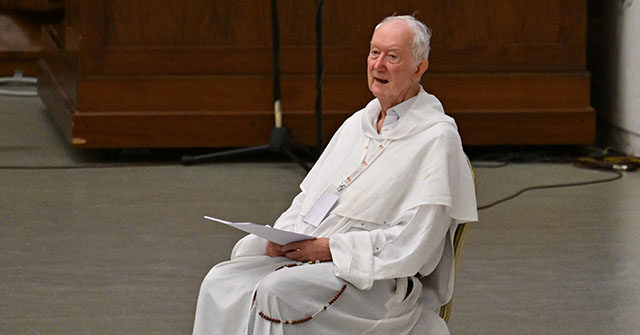Father Timothy Radcliffe, a prominent gay-rights advocate and UK priest, has found himself embroiled in controversy regarding his remarks on the African Catholic Church’s stance on homosexuality. Scheduled to be made a cardinal by Pope Francis in December, Radcliffe has recently denied claims that he suggested the resistance to homosexuality among African bishops is linked to foreign financial influence, particularly from wealthy American evangelicals. In an article published on October 12 in the Vatican newspaper L’Osservatore Romano, Radcliffe called for the Catholic Church to be inclusive, emphasizing the need to welcome individuals from various backgrounds, including the divorced and LGBTQ+ community. He highlighted the tension between universal Church teachings and the local responses in Africa, where embracing homosexuality is seen as an affront to cultural values.
In discussing the rejection by African bishops of the Vatican document titled Fiducia Supplicans—which proposed recognizing priestly blessings for gay couples—Radcliffe lamented the unprecedented unity among African bishops against this Vatican initiative. He reflected on Cardinal Fridolin Ambongo’s efforts to explain to Pope Francis the African bishops’ inability to accept the blessing of same-sex couples, which he noted was a significant moment in Church history. Radcliffe posed an intriguing question regarding whether the bishops’ rejection represents an authentic cultural response or a fear of nonconformity. His statement highlighted the complex interplay of cultural, spiritual, and political pressures influencing the African church’s approach to LGBTQ+ issues.
Despite his assertions seeking to explain the African Conference of Bishops’ rejection, Radcliffe notably refrained from referencing biblical teachings regarding homosexuality or the established doctrine of the Church. Instead, he attributed the bishops’ stance to external pressures, specifically mentioning the financial backing from American evangelicals, Russian Orthodox, and Muslim groups. His remarks suggested that African bishops’ resistance was less about fidelity to Christ and more about succumbing to these external influences, which ignited further discussion on the extent of both foreign interference and cultural autonomy in African Christianity.
Cardinal Ambongo, responding to Radcliffe’s comments, firmly asserted that there simply is no acceptance of blessings for same-sex couples in African churches. He reiterated that blessings in the Catholic context are meant for individuals with the hope that it would lead to conversion, reflecting the Church’s longstanding teachings on homosexuality. Ambongo emphasized that promoting sexual deviation is incongruent with the Church’s mission and reiterated the need to uphold traditional doctrines concerning sexual orientation. His comments further underscored the divergent views and understanding between African and Western interpretation of moral theology and pastoral care.
As the controversy escalated, Father Radcliffe issued a denial of the interpretation that he had suggested the African bishops were influenced by foreign money in their theological positions. He clarified in an official communiqué that he never posited that financial considerations dictated the African Church’s stance but rather acknowledged the broader pressures they face from well-funded external religions. The situation illustrates the ongoing tension within the Catholic Church as it grapples with inclusivity and fidelity to doctrine, particularly within culturally diverse contexts like Africa, where traditional beliefs frequently clash with contemporary positions on gender and sexuality.
Cardinal Ambongo expressed disbelief at the interpretations attributed to Radcliffe, suggesting a miscommunication regarding Radcliffe’s remarks reflecting external pressures on the African bishops. The situation highlighted the delicate balance between adhering to Church doctrine while also engaging with and respecting local cultural sentiments. Amidst these tensions, the responses from both clerics reflect the complexities of global Catholicism as it navigates critical social issues, revealing the necessity for deep dialogue among varying cultural perspectives to establish a more inclusive Church that reconciles its teachings with the rich diversity of its global congregation.

